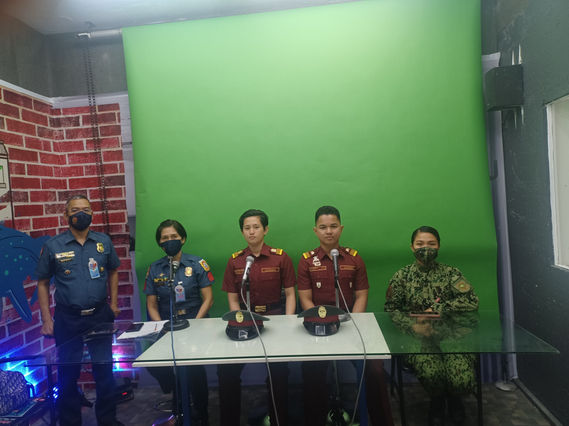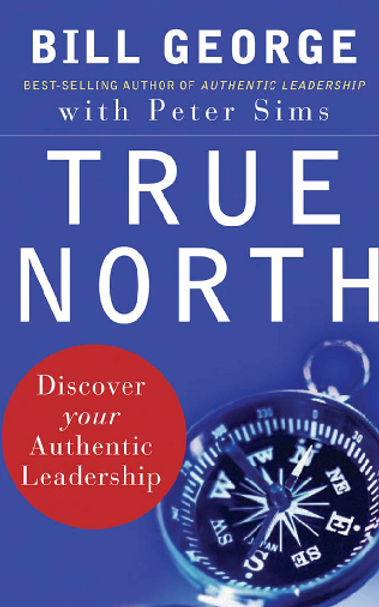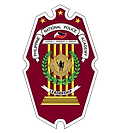


Iskolar Para sa Bayan
KADETE





Police Cadet

I am PCDT John Lloyd S Gomez, a proud uragon from Sorsogon City, Bicol. I was born on January 3, 2001. My parents were both hardworking individuals who instilled in me the importance of education and perseverance. As a child, I was always curious and loved learning new things.
As I reached high school, my love of learning led me to pursue the strand of Science, Technology, Engineering, and Mathematics at St. Louise de Marillac College of Sorsogon. Months before graduating as a senior high school student, I took the Philippine National Police Academy Cadetship Admission Test (PNPACAT) on October 2018 and by God's grace, I passed the examination.
Life inside the Academy was challenging because the rigorous training involved physical activities and drills, academic studies, and leadership development, which require a lot of time and effort. Another essential aspect of being a member of the Corps of Cadets is the sense of community and brotherhood. The camaraderie that developed among us fosters a strong sense of unity, mutual support, and respect for one another. The Academy also provides a platform for learning, growth, and sharing experiences.
We are also expected to maintain high standards of discipline, fitness, and performance throughout the 4-year stay in the Academy. Being a PNPA cadet is challenging but rewarding, providing an opportunity to gain valuable training, education, and experience that can prepare me for a successful career in law enforcement.
Looking back on my life so far, I am grateful for the opportunities I've had and the people who have supported me along the way. I'm excited to see where my career and personal life take me in the future.


Cadet Attachment Program
(Station Immersion)
Station Immersion has been an unforgettable and transformative experience. It gave me the opportunity to gain hands-on experience and allowed me to learn about the unique challenges and opportunities in a police station, and helped me to develop a more comprehensive understanding of police service.
One of the most valuable lessons I learned during the first week of station immersion is the importance of community engagement. I had the chance to interact with local residents in different barangays, and witness how the police officers interacted with them, especially during outreach programs and community meetings. I realized that community policing is not just about enforcing laws but also building trust and relationships with the people they serve.
Another key takeaway from my experience is the need for discipline and self-control, especially in difficult situations. Witnessing the police officers handle various cases such as domestic violence, traffic accidents, and crime scenes gave me a newfound respect for their composure and professionalism. Their ability to stay calm and think critically in challenging situations was truly admirable.
It also taught me the importance of teamwork and collaboration in law enforcement leading to more innovation, efficient processes, increased success, and improved communication. Through listening to and learning from team members, we can help each other reach our common goal. I learned that effective law enforcement requires strong partnerships between law enforcement agencies, as well as with other community organizations and stakeholders.
Overall, the Cadet Attachment Program was a valuable experience that helped me develop important skills and gain valuable insights. I believe that this program will be instrumental in shaping me into an effective police officer in the Philippine National Police.

Book Review

The Art of War
-Sun Tzu
True North
-Bill George with Peter Sims
"Leadership is not just about position or power, it's about staying true to your values, your purpose, and your principles - your 'True North' - even in the face of adversity and uncertainty."
“If you know the enemy and know yourself, you need not fear the result of a hundred battles."
Reading these books and making a reflection about these helped me develop a better understanding of what it takes to be a successful leader, and has given me valuable insights into how I can improve my leadership skills. As I read their stories and insights, I can learn from their successes and failures, and gain valuable knowledge that can be applied in my leadership journey.
One of the most important things that I have learned from these books is the importance of leading by example. As a future police officer, it is important to set a positive example for others to follow and to be willing to do the hard work and make the tough decisions that are necessary for success. An important benefit of leading by example is that I can inspire and motivate my team. When they see me working hard, taking risks, and striving for excellence, they are more likely to be motivated to do the same. This can help create a positive and dynamic work environment, where everyone is committed to achieving the organization's goals.
Another key lesson that I have learned from these books is the importance of effective communication. As a future leader of the Philippine National Police , it is essential to be able to communicate your vision, goals, and expectations clearly and effectively, and to be willing to listen to and respond to feedback from others. This can help to create a more positive and productive work environment, where everyone feels heard and understood. However, effective communication is not always easy. It requires a great deal of skill, practice, and patience.
Also, I have learned that true leadership is about serving others. As a leader, it is important to put the needs of my team above myself and to work tirelessly to help my team members achieve their goals and reach their full potential. Servant leadership is about serving others and putting their needs before your own. Being a future leader, my primary goal is to help my team members grow, develop, and achieve their goals.
Overall, I believe that the lessons I have learned from these leadership books will be invaluable as I continue my journey as a PNPA cadet and as a future leader in the Philippine National Police. I look forward to putting these lessons into practice and making a positive difference in the lives of those around me.




As a cadet of the Philippine National Police Academy, I have a deep appreciation for the importance and significance of the Academy in the development of the police service in the Philippines. The Academy is the premier institution for the training and education of police officers, and it plays a vital role in shaping the future of law enforcement in the country.
Throughout my experience as a PNPA cadet, the Academy provides a comprehensive and rigorous training program that is designed to equip us with the knowledge, skills, and values that are essential for effective law enforcement. It is important for us to gain these because we will be leading our subordinates in the different units of PNP as we leave the portals of this academy.
Also, the Cadetship Training Program covers a wide range of topics, including law enforcement, leadership, management, human rights, and community relations, among others. The training is designed to be physically, mentally, and emotionally challenging to prepare us for the demands of police work.

Moreover, the PNPA fosters a culture of discipline, professionalism, and respect for the rule of law. We are expected to adhere to a strict code of conduct and maintain the highest standards of ethical behavior. The Academy also promotes a sense of camaraderie and teamwork among us, encouraging them to work together to achieve their goals and to support one another.
As a cadet, I have come to appreciate the value of the PNPA in developing the future leaders of the police service. The Academy provides a platform for us, young men and women to pursue a career in law enforcement, and it offers us the opportunity to make a meaningful and positive impact on society. The PNPA also provides a path to upward mobility within the police force, as many of the top leaders in the organization are PNPA alumni.
Last but not the least, I believe that the Academy plays a huge role in the development of the police service in the Philippines. It provides a comprehensive and rigorous training program, fosters a culture of discipline and professionalism, and develops the future leaders of the police force. The PNPA is an institution that I am proud to be a part of, and I am committed to upholding its values and traditions throughout my career in law enforcement.

Discipline & Professionalism


Two roads diverged in a wood, and I—
I took the one less traveled by,
And that has made all the difference.
Robert Frost



The quote "two roads diverged in a wood, and I — I took the one less traveled by, and that has made all the difference" by Robert Frost is a powerful statement about the importance of taking risks and charting your path in life. In my own perspective, this quote can be interpreted in several ways.
First, it underscores the importance of being willing to take risks and make unconventional choices. As future leaders of the community, we need to be critical decision-makers. Leaders who are willing to take the road less traveled, try new approaches, and take calculated risks, are often the ones who achieve the most significant results. In other words, leaders who are willing to be bold and innovative can create a path that others have not yet traveled.
Second, I realized that the road less traveled may not always be easy, but it can be rewarding in the long run. We take risks and forge our path and may face challenges and obstacles that others have not experienced. As a cadet of the Philippine National Police Academy, joining the Cadetship Training Program is an example of a road less traveled. However, the rewards of such an approach can be great and can lead to significant growth and development both personally and professionally.
Another thing is I understand the importance of personal choice in leadership. I must make decisions about how to lead, what values to embody, and what path to take. Just as the speaker in Frost's poem chose to take the road less traveled, leaders must make their own choices about the path they will take, and the impact they want to have on their organization or community.
As a summary, the quote "two roads diverged in a wood, and I — I took the one less traveled by, and that has made all the difference" encourages us to take risks, chart our path, and be true to our values. The road less traveled may not always be easy, but it can be immensely rewarding. As future police officers, who are willing to be bold and innovative are often the ones who make the greatest impact in their organizations and communities.







































